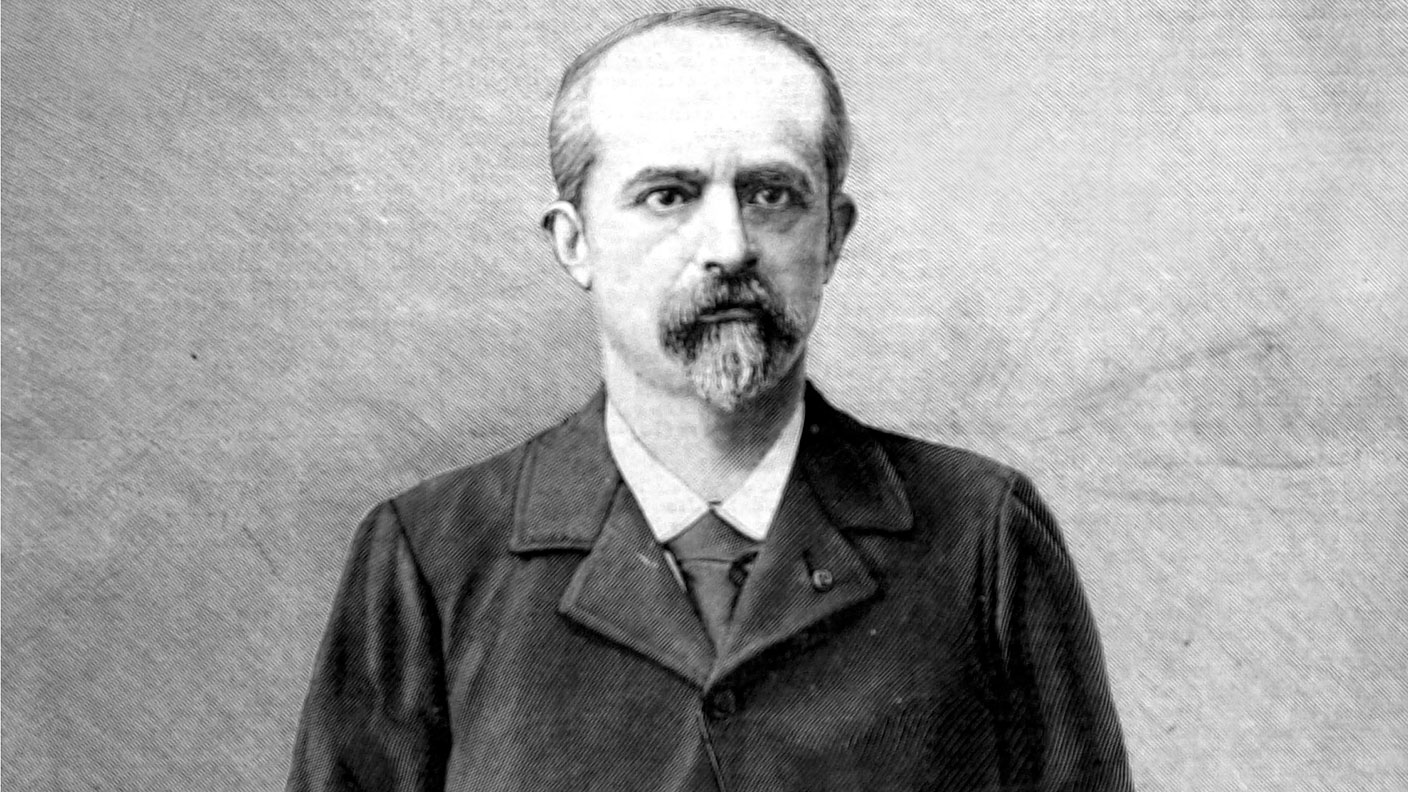14 August 1893: World's first driving licences introduced
The 'Paris Police Ordinance' took effect on this day in 1893, requiring number plates on cars, and introducing the world's first driving licences.


Get the latest financial news, insights and expert analysis from our award-winning MoneyWeek team, to help you understand what really matters when it comes to your finances.
You are now subscribed
Your newsletter sign-up was successful
Want to add more newsletters?

Twice daily
MoneyWeek
Get the latest financial news, insights and expert analysis from our award-winning MoneyWeek team, to help you understand what really matters when it comes to your finances.

Four times a week
Look After My Bills
Sign up to our free money-saving newsletter, filled with the latest news and expert advice to help you find the best tips and deals for managing your bills. Start saving today!
When Jules-Albert de Dion crossed the finish line five minutes ahead of everyone else in the world's first motor car competition in 1894, he wasn't very happy. And it wasn't just because the first prize went to the guy behind him.
The previous year, Louis Lépine became the top civil servant at the Seine police department, covering Paris and the surrounding countryside. He wasn't long in the job when he decided the new-fangled machines gracing the streets of the capital needed regulating. And so, on 14 August 1893, the Paris Police Ordinance took effect.
The new regulations required drivers to have number plates on their cars and adhere to a speed limit of 20km/h on country roads and 12km/h in built-up areas. It also created two other world firsts: driving tests and driving licences – the certificat de capacité de conduit d'un véhicule moteur.
MoneyWeek
Subscribe to MoneyWeek today and get your first six magazine issues absolutely FREE

Sign up to Money Morning
Don't miss the latest investment and personal finances news, market analysis, plus money-saving tips with our free twice-daily newsletter
Don't miss the latest investment and personal finances news, market analysis, plus money-saving tips with our free twice-daily newsletter
The new speed limit wouldn't have worried you much – at least, not at first. Jules-Albert de Dion averaged 20km/h over the 79 miles from Paris to Rouen and he was in a hurry. That said, the first woman to gain a driving licence, the duchess of Uzs, was also the first person to get a speeding ticket in 1898.
The early driving tests wouldn't have cost you much sleep either. You just had to prove you could pull away, steer, stop and have a vague idea of why you broke down. Of course, you wouldn't have had any formal lessons – those appeared in 1917. But it wasn't until 1935 that driving tests arrived in Britain.
Driving licences didn't go down well with these early motoring enthusiasts. Perhaps fearing government meddling in their hobby, they formed themselves into groups.
One such group was led by the aggrieved Jules-Albert de Dion, who in 1895 founded the Automobile Club de France – a Paris gentleman's club still in existence today.
Get the latest financial news, insights and expert analysis from our award-winning MoneyWeek team, to help you understand what really matters when it comes to your finances.

-
 Should you buy an active ETF?
Should you buy an active ETF?ETFs are often mischaracterised as passive products, but they can be a convenient way to add active management to your portfolio
-
 Power up your pension before 5 April – easy ways to save before the tax year end
Power up your pension before 5 April – easy ways to save before the tax year endWith the end of the tax year looming, pension savers currently have a window to review and maximise what’s going into their retirement funds – we look at how
-
 31 August 1957: the Federation of Malaya declares independence from the UK
31 August 1957: the Federation of Malaya declares independence from the UKFeatures On this day in 1957, after ten years of preparation, the Federation of Malaya became an independent nation.
-
 13 April 1960: the first satellite navigation system is launched
13 April 1960: the first satellite navigation system is launchedFeatures On this day in 1960, Nasa sent the Transit 1B satellite into orbit to provide positioning for the US Navy’s fleet of Polaris ballistic missile submarines.
-
 9 April 1838: National Gallery opens in Trafalgar Square
9 April 1838: National Gallery opens in Trafalgar SquareFeatures On this day in 1838, William Wilkins’ new National Gallery building in Trafalgar Square opened to the public.
-
3 March 1962: British Antarctic Territory is created
Features On this day in 1962, Britain formed the British Antarctic Territory administered from the Falkland Islands.
-
10 March 2000: the dotcom bubble peaks
Features Tech mania fanned by the dawning of the internet age inflated the dotcom bubble to maximum extent, on this day in 2000.
-
9 March 1776: Adam Smith publishes 'The Wealth of Nations'
Features On this day in 1776, Adam Smith, the “father of modern economics”, published his hugely influential book The Wealth of Nations.
-
 8 March 1817: the New York Stock Exchange is formed
8 March 1817: the New York Stock Exchange is formedFeatures On this day in 1817, a group of brokers moved out of a New York coffee house to form what would become the biggest stock exchange in the world.
-
7 March 1969: Queen Elizabeth II officially opens the Victoria Line
Features On this day in 1969, Queen Elizabeth II took only her second trip on the tube to officially open the underground’s newest line – the Victoria Line.